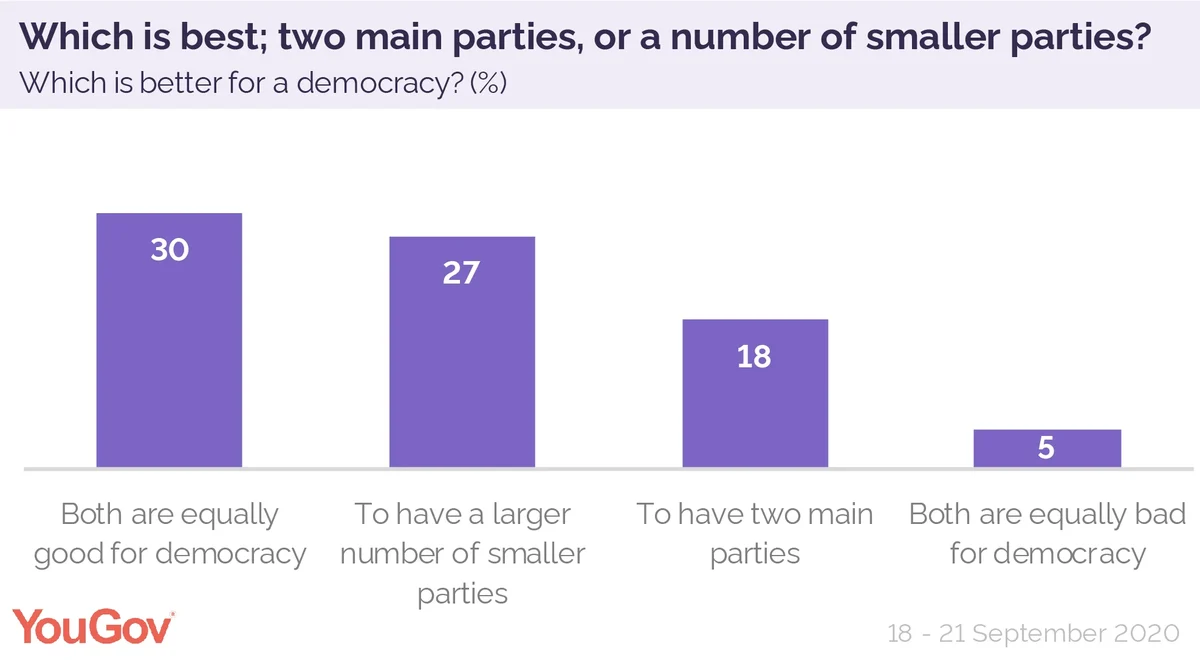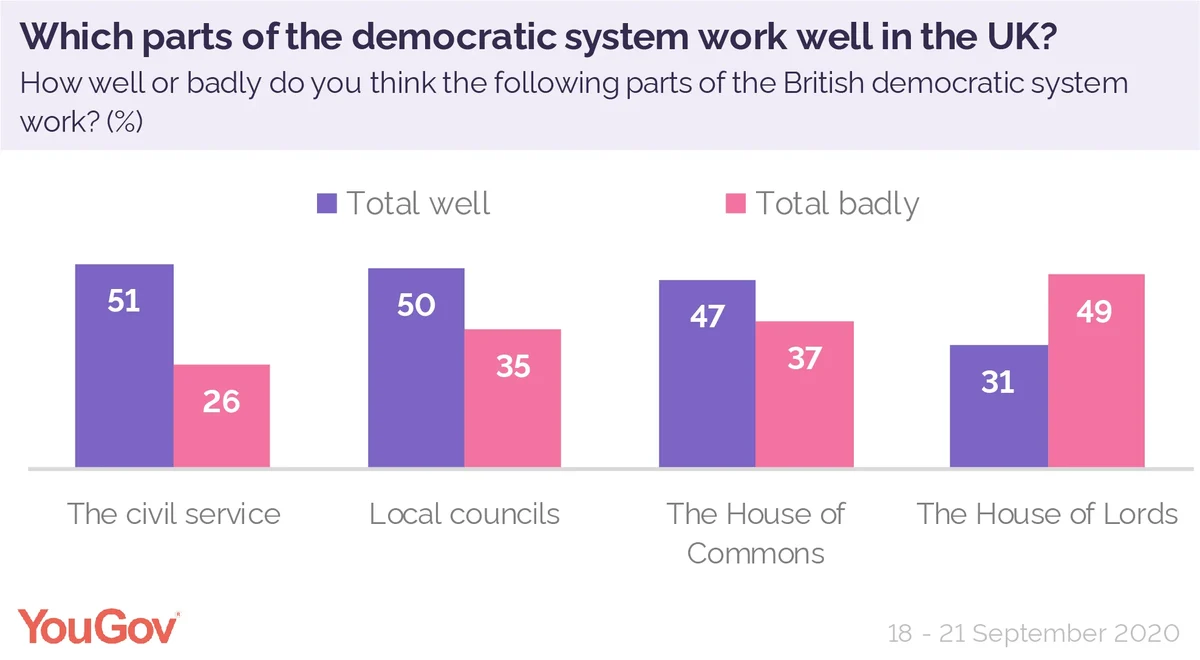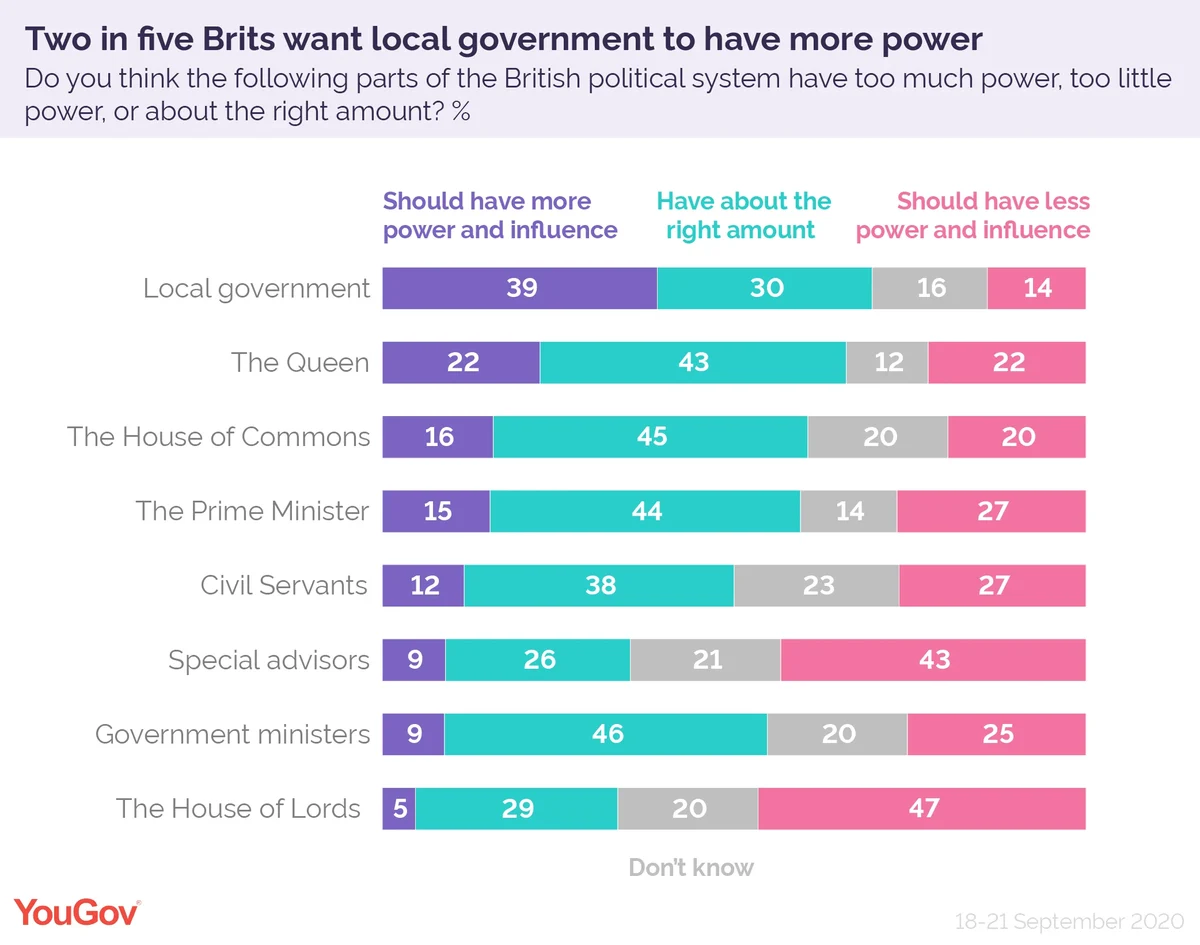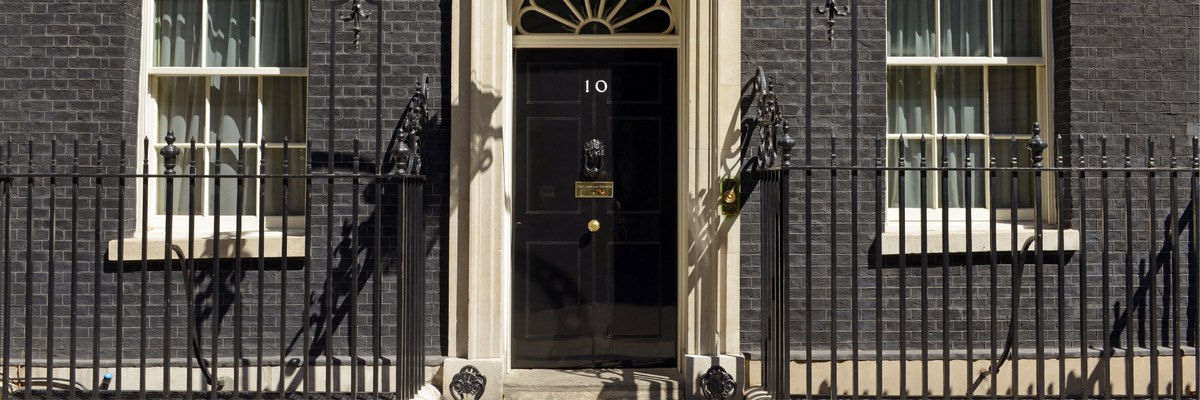British parliamentarianism stands at the heart of the political system in our country. However, within today’s Britain, there are deep divisions around perceptions of how that system is working
The YouGov Democracy Study finds strong public support for the redistribution of power in the UK from central to local and regional levels.
The runup to the 2019 general election saw calls to end the traditional two-party system in British politics. The YouGov Democracy Study has found that the British public is split when asked which number of political parties would work best for our democracy. Just under one in five (18%) think that a system of two main parties works best. A considerably higher number – over a quarter of the population (27%) - think there should be a greater pool of parties.

Four in ten (42%) of those who said that democracy doesn’t work well in the UK, as well as a quarter (25%) of those who think it does, would like to see more smaller parties.
Support for the two-party system is strongest among those aged 60 and over, where a quarter (26%) think this works well – 10 percentage points higher than see in any other age group.
Just one in nine (11%) 16 to 24-year-olds think a two-party system is a good solution. A third of those over that but under 40 (34%) think it would be best to have more parties, which is an opinion shared by a quarter of those in their 40s and 50s, and a fifth (21%) of those over 60.
The party vote breakdown shows that four in ten (39%) Labour and Lib Dem supporters think a larger number of parties would be better, while just one in seven (15%) of Conservative voters back this view.
Which parts of the political system work well, and which don’t?
When it comes to how well or badly key democratic institutions in the UK work, half of the public (51%) thinks that councils and the civil service are doing a good job. Furthermore, nearly half (47%) of the public thinks the House of Commons works well.
Conversely, nearly half (48%) think that the House of Lords is not performing properly. Half of both Labour and Conservative voters (51% respectively) share this view.

(Re)distribution of power in Westminster
The results of the YouGov Democracy Study show that over half (52%) of the public would like to see more decision-making powers in the hands of local and regional government.
Just one in eight (12%) would like to see Westminster concentrating more power, while a fifth of the population (21%) think the current power balance is about right.
Support for decentralisation of powers is strong across all parts of Britain. Two-thirds of the public in Scotland (66%) would like more powers to be taken from Westminster, with only one in ten (10%) having the opposite opinion. In England and Wales, over half (51% and 52% respectively) would like to see local and regional governments have more authority.
When we looked at the issue from the perspective of party loyalty we found that two-thirds of Labour (68%) and Lib Dem (66%) voters favour a greater transfer of powers from the central to the regional and local level. This is considerably higher than amongst Conservative voters, where only four in ten (40%) share this view. Conversely, a fifth (21%) of Conservative voters would like to see a greater centralisation of powers.
Looking closer at power distribution within Westminster, over a quarter (27%) of the public would like to see the Prime Minister have less influence than now. This applies to 8% of those who voted Conservative in 2019 and nearly half (45%) of Labour supporters.
The greatest dissatisfaction, however, is with the House of Lords and government advisors: nearly half would like to see the upper house have less influence (47%), and over four in ten (43%) think the power of government advisors should be reduced. This is perhaps not so surprising given long-standing calls for reform of the House of Lords as well as the recent negative publicity about the PM’s advisor Dominic Cummings when he broke the lockdown rules in May this year.
A quarter of Britons would like to see Government ministers (25%) as well as the civil service (27%) having less influence in the British political system.
The institution of the ruling monarch – although mostly symbolic – remains stable in terms of support. A fifth (22%) would like to see the Queen lose her remaining powers, and a fifth (22%) would like to see them increased.

Local government sees the strongest support for increased powers: four in ten (39%) Britons would like to see them gain influence. This is in line with our previous data showing that half (49%) of the public would like to see more referenda on local issues in their area.
See full results here





